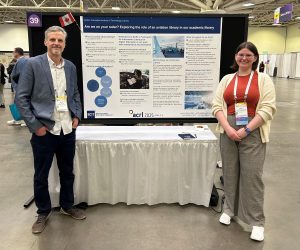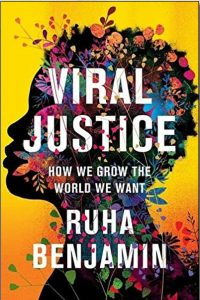Minneapolis, MN
Opening the Association of College and Research Library’s 2025 conference, Ruha Benjamin’s keynote hinged on two propositions:
1. It is the Paypal Mafia, that exclusive billionaire class that touts its Generative AI wares as the solutions for all of society’s problems, that is also the most determined in attacking Higher Education and particularly its activities aroundEDI, Critical Race Theory, and so on.
2. Having thus confirmed its danger to the powers that be, we (educators, librarians) should be all the more determined to embrace the power of a liberalizing education.
Her thoughts set the tone for this conference, which can best be described as ’embattled but determined’ – to resist collectively as US Higher Ed comes under increasing attack. A good third (my guess) of the scheduled presentations touched on the topics of GenAI, RDI/EDI or academic freedom. Not everyone was on the same page, particularly around GenAI. It was interesting to see, for example, lightning talk presenters share a stage for directly opposing views. That said, the discussions that I saw were conducted with respect and civility. (Even US immigration didn’t give me a hard time.)
Here are a few more highlights:
- Academic Freedom Under Threat Academic Librarians from Texas and Florida shared horror stories of how state laws are making it difficult or impossible for them to participate in campus activities like Banned Book Week, Pride Week or to purchase certain kinds of materials. A glimmer of hope (but from California) that union activism, and naming and shaming, can have positive outcomes for librarians with precarious academic freedom.
- GenAI Competencies Representatives from the American Library Association presented their draft document AI Competencies for Academic Library Workers. Listening to the feedback their draft generated, between the two extreme positions (all GenAI all the time vs. Luddites), the middle road is to at least know about these technologies and how they work so we can advise faculty and students how to properly use them. (But doesn’t even that low bar require experience using them?)
- Resource Evaluation Why & How Librarians and COMM instructors from Eastern Washington University presented results from their collaboration on teaching students about resource evaluation using the WHY Method:
- Who wrote it?
- How was it edited?
- Why was this published
I do love a good resource eval method, but this one seems too narrowly focused on authority. There are many other factors that encompass quality. But the project was an example of the sort of synergy the library tries to achieve with our COMM classes at BCIT.
- Separating the Toys from the Tools Discussion here centred on the Choice Reviews framework for assessing GenAI tools. But new tools with specialized applications are coming out every day, and more are being integrated into our library databases by vendors with little to no consultation (other than a breathlessly enthusiastic announcement after the fact). Librarians reported being asked to vet these tools and give recommendations to faculty. It seems like reinforcing best practices rather than acting as GenAI gatekeepers is a more sustainable role.
- Measuring What Matters I sort of knew that there are no easy answers for measuring library impact, but I was still disappointed to hear that there are no easy answers! The Library’s magic sauce is connecting people. Ideally we would have evidence that an investment of x dollars will result in y impact on learning / retention / completion. But libraries all seem to maintain library gate counts that tell us very little of value. This presentation was a good reminder that I need to look at Oakleaf’s work again, which is still considered foundational. (The discussion also reminded me of Henry Minzburg’s recent blogpost on efficiency in a very different context but the point is the same: costs are easy to quantify while benefits are not.)
- Partnerships Between Libraries and Writing Centers This presenter surveyed the partnerships and described a continuum of collaboration between none to establishing a one-stop shop where librarians and writing helpers are side-by-side in presenting support. I need to talk to our own Learning Commons Coordinator, Douglas Buchanan, about more opportunities for collaboration along the lines of our upcoming co-presentation for new Nursing students.
- Presentation! My main purpose in attending ACRL was to co-present with Leah Guffroy, a student in UBC’s Archival Studies and Library Information Studies. In fall 2024, Leah did a work placement with BCIT library, during which the two of us explored the concept of Trades Librarianship especially as it plays out at BCIT’s Aerospace Campus Library. Our poster was well-received, and we got a lot of responses along the lines of ‘why aren’t more people talking about this?’. We’ll be talking about it some more, including at BCLA 2025!

Photo credit: Dan Dziamba
Thanks to Leah for all her work on this project, to Elly (Library Marketing) for the lovely poster template, to Mimi and Alistair (MediaWorks) for their help printing and securing the poster for transport, and to BCIT for supporting this professional development trip. I am very grateful.
Jeff Verbeem
